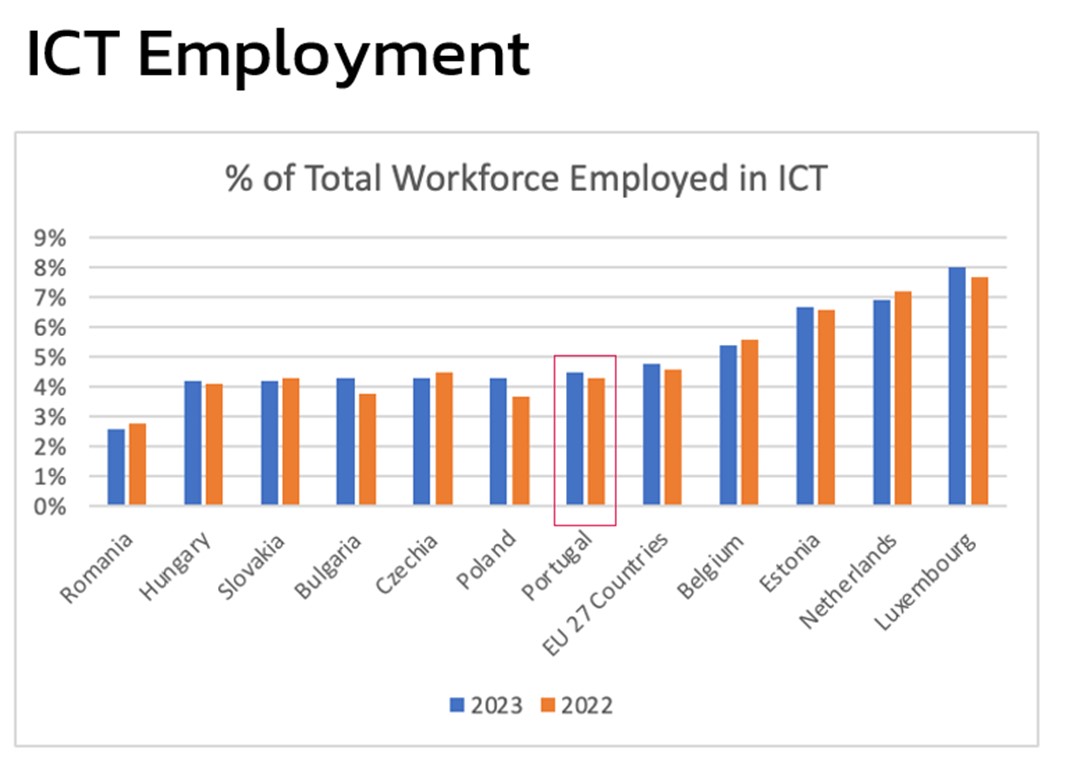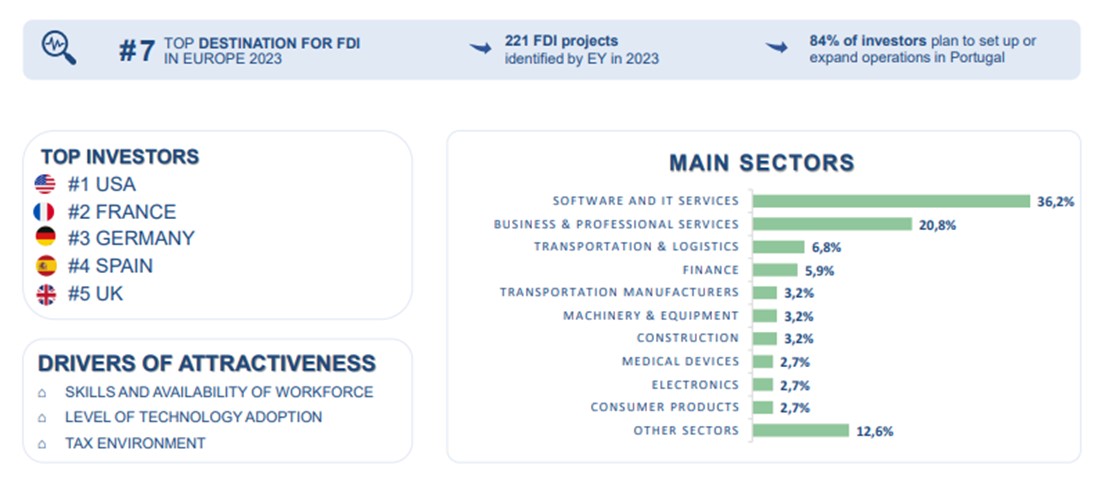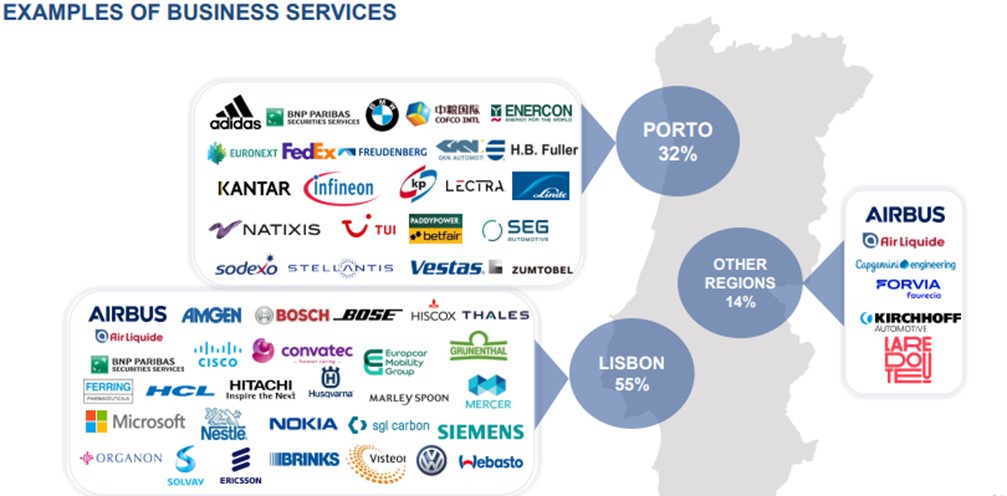Internal Articles
Captive Centres: The Strategic Advantages of setting up in Portugal

In the quest to optimize operations and reduce costs without compromising quality, many companies are turning to nearshoring as preferred strategy.
Nearshoring refers to outsourcing services to nearby countries with similar time zones and cultural affinities, allowing close collaboration and effective project management. For companies seeking to outsource technology services in Europe, factors such as talent quality, costs, English proficiency and culture are crucial to select the right partner. Portugal emerged as one of the most attractive nearshoring destinations across Europe, specially for information technology (IT) services. With a skilled workforce, competitive salaries and robust IT infrastructure, Portugal stands out against other European nearshoring hubs, including Poland, Czech Republic and other Eastern Europe countries.
Competitive Edge of Portugal in Nearshoring
Portugal’s geographic proximity to other Western European countries ensures minimal time zone differences, allowing an easier communication and efficient project execution. As a Western European country, Portugal shares cultural affinities with other countries in the region, such as Belgium, Netherlands, and Germany. This cultural similarity incorporates shared business values and aligns work ethics, which can facilitate smother collaboration compared to Eastern European locations.
These similarities in business practices and social norms between Portugal and other Western European countries reduce the chance of misunderstandings and making the integration of teams more fluid and natural.
These factors make Portugal a convenient choice for companies seeking a reliable nearshore partner in Europe, especially for those that value strong relationship-building transparency in business partnerships.
Talent and English Proficiency: Portugal’s Skilled Workforce
For the past years, Portugal has invested heavily in education and workforce development, resulting in a highly skilled labor pool. According to Eurostat, around 31% of education graduates in Portugal are in science, technology, engineering and mathematics (STEM) fields, positioning the country favorably among other nearshoring destinations in Europe. Portugal is placed in 2nd place and is only surpassed by Germany (36%), being clearly above Eastern Europe countries and European Union average (26%).

Portugal’s growth in information and communication technology (ICT) sector highlights its competitiveness, with ICT employment rates at 4.5% which represents 220.000 people employed in this sector which is slightly above other major nearshoring location like Poland and Romania. Portugal is only surpassed by one Eastern Europe Country, Estonia (6.75%) with a total of 45.000 workers in ICT sector. Moreover, Portugal political and economic stability provides a reliable business environment for medium and long-term collaborations.

English proficiency is another area where Portugal outstands, ranking among the top non-native English-speaking countries in Europe, more specifically 7th, with a very high proficiency classification according to Education First (EF). In this report presented by EF, there are no other nearshore competitors from Eastern Europe with a very high classification neither on other Western Europe nearshoring options, such as Spain, France or Italy, which gives Portugal a clear advantage for clients looking for nearshore partners in Europe.

Cost Efficiency: Salaries and Hourly Rates
The key driver behind nearshoring is cost reduction. Investing in Portugal represents significant savings when compared to other Western European countries. The average salary for IT professionals in Portugal is considerably lower than in countries like Belgium, Netherlands, Germany or Luxembourg.
The average salary for IT professionals in Portugal is considerably lower than in countries in West Europe as the ones mentioned above. For example, senior software developers in Belgium earn an average of €65,000 or more annually, while their counterparts in Portugal earn between €40,000 and €45,000.
Hourly rates also reflect this cost advantage. The ranges for IT services in Portugal typically range between €20 and 40€ per hour while in Belgium hourly rates can be as high as €60 to €120. These savings allow companies to optimize their technology investments without compromising on quality and expertise.
For firms considering nearshoring, choosing Portugal means gaining access to high quality IT services at a fraction of the cost of other Western European nations, making Portugal an attractive option for companies looking to maximize their return on investments.
Government Incentives and Major Tech Hubs
Portugal is increasingly being recognized as a favorable destination for foreign investments, particularly in the tech sector. The government offer various fiscal incentives for newcomers to the corporate market, making it easier and more attractive to establish company operations in the country. These incentives include tax benefits and grants for research and development, which are particularly appealing for tech firms looking to expand.

Remarkably, major global companies have chosen Portugal as a location for their tech hubs. Mercedes-Benz.io has established a presence in Lisbon focusing on the development of digital solutions and services for the automotive sector. Volkswagen opened Volkswagen Digital Solutions in Lisbon and Oporto, where they are actively developing innovative solutions for the Volkswagen Group. Microsoft has a significant operation in Portugal, including a development center in Lisbon that focuses on cloud services and AI technologies. Siemens established their Digital Industries division in Lisbon, working on automation and digitally transforming solutions. Additionally, Google has announced plans to expand its presence in Lisbon, where it aims to strengthen its engineering capabilities.
These investments and operations in Portugal highlight the country’s growing importance as a tech hub in Europe, supported by a skilled workforce and a favorable business environment.


Conclusion
Portugal stands out as a strategic partner for companies seeking to enhance their operations through nearshoring in Europe. With its highly skilled workforce, competitive salaries, and strong English proficiency, the country offers significant advantages over traditional nearshoring locations. The cultural alignment with Western European nations, combined with a favorable business environment and governmental incentives for tech firms, further solidifies Portugal’s appeal.
As major global companies establish their tech hubs in cities like Lisbon and Oporto, it becomes clear that Portugal is not just a cost-effective solution but a hub of innovation and expertise. By choosing Portugal for nearshoring, companies can improve their operational capabilities while maintaining quality and efficiency, paving the way for successful and sustainable partnerships.
Internal Articles
Related Articles



















